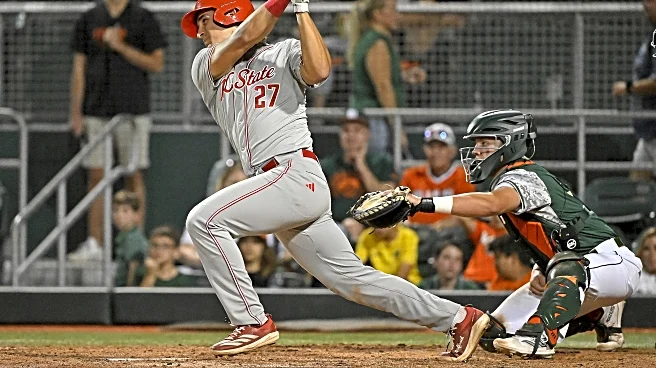What's Happening?
In Surry, Virginia, a unique election took place where 19-year-old Cameran Drew ran for a seat on the board of supervisors. Drew was inspired by his high school civics class to enter the political arena.
His opponent in this election was none other than his civics teacher, Kenneth Bell. This unusual matchup has drawn attention as a potential teachable moment in civics and civility, highlighting the engagement of young individuals in local politics.
Why It's Important?
This election serves as a significant example of youth involvement in politics, demonstrating the impact of education on civic engagement. It underscores the importance of civics education in empowering young people to participate actively in democratic processes. The candidacy of Cameran Drew, a teenager, against his teacher, Kenneth Bell, reflects a growing trend of younger generations stepping into political roles, which could influence future political landscapes and policies. This event may encourage educational institutions to further integrate practical political experiences into their curricula.
What's Next?
The outcome of this election could influence how civics is taught in schools, potentially leading to more hands-on political experiences for students. It may also inspire other young individuals to consider running for office, thereby increasing youth representation in local government. Stakeholders such as educators, policymakers, and community leaders might explore ways to support and mentor young candidates, fostering a more inclusive political environment.
Beyond the Headlines
This election highlights the ethical and cultural dimensions of political engagement, particularly the role of educators in shaping future leaders. It raises questions about the balance between mentorship and competition in educational settings, and how these dynamics can be navigated to benefit both students and teachers. The event could lead to discussions on the role of schools in promoting civic responsibility and the importance of fostering respectful political discourse.











